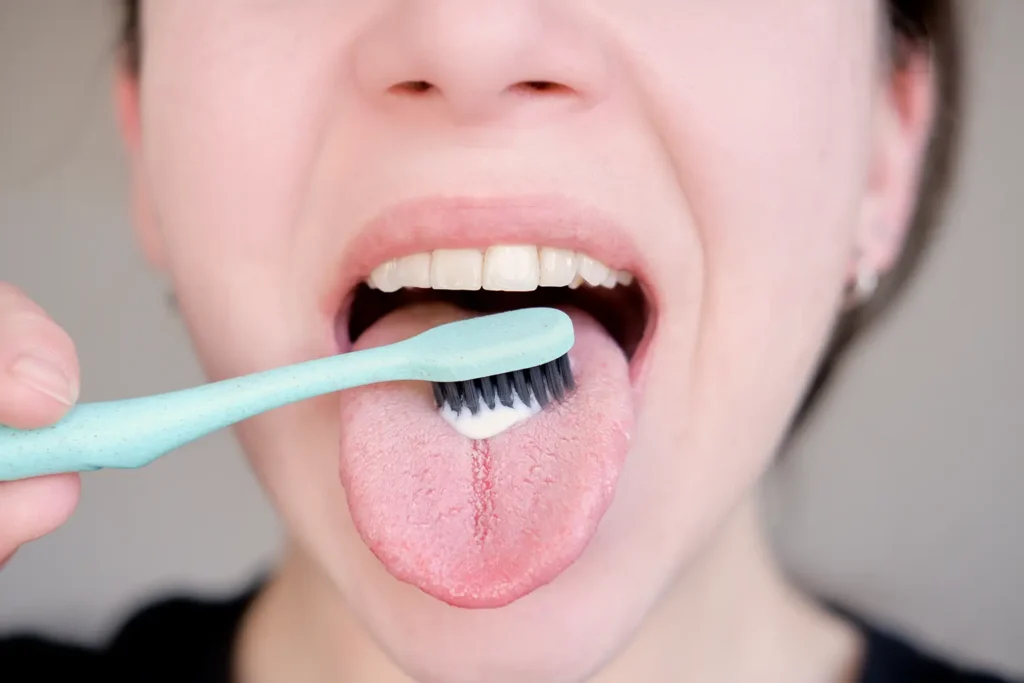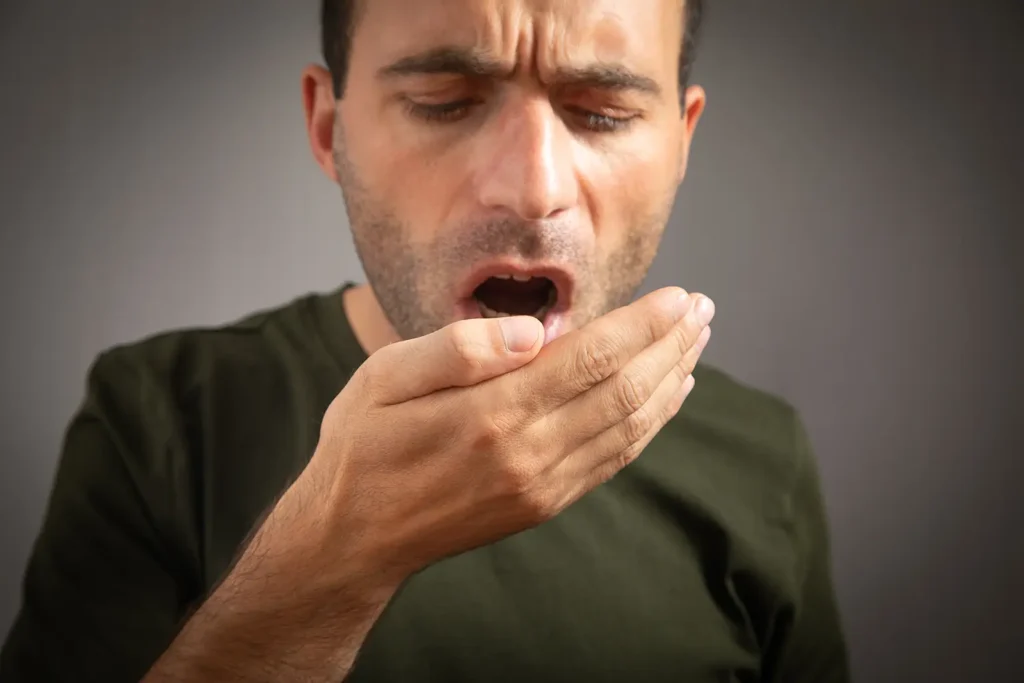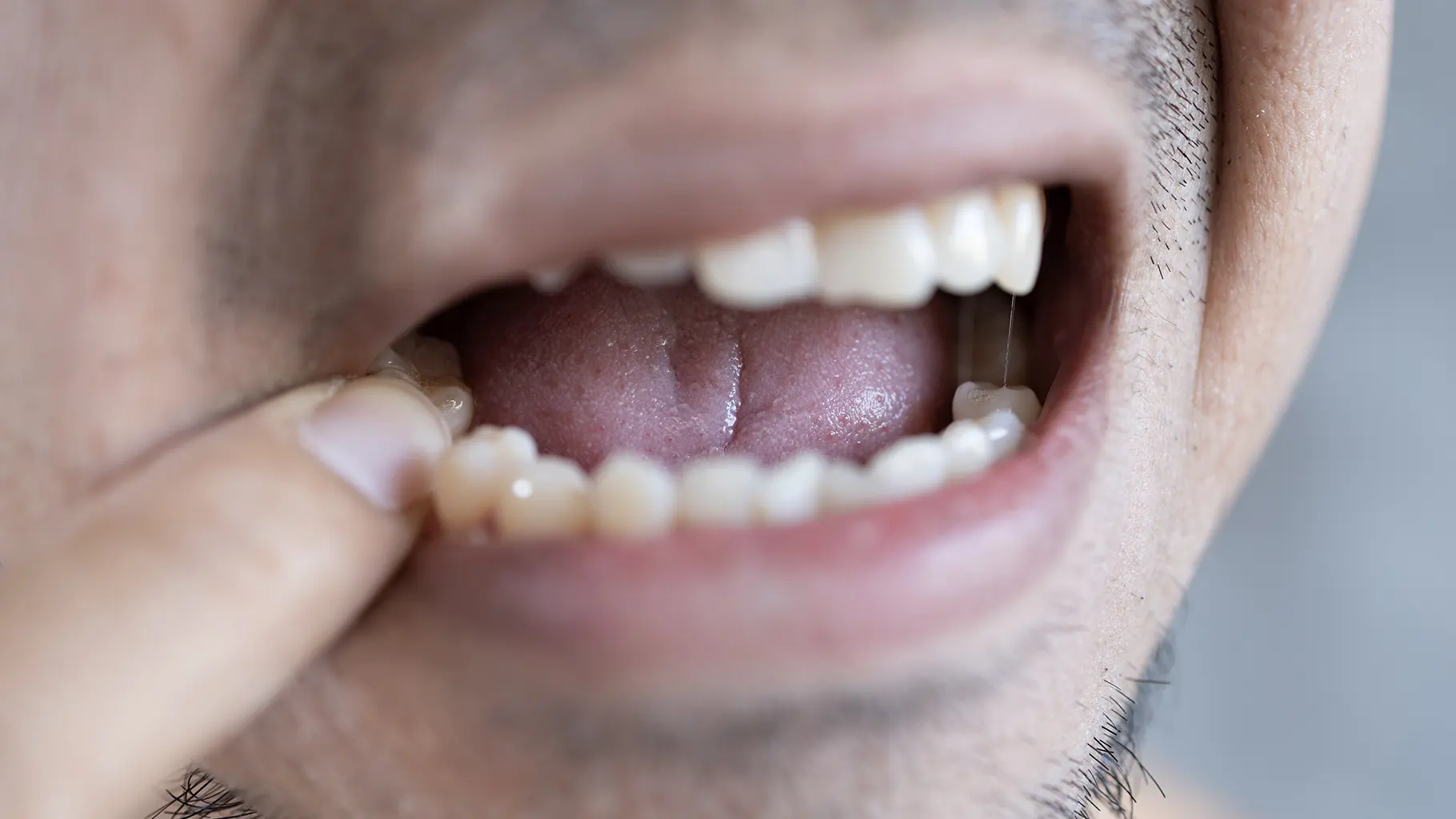Bad breath, medically known as halitosis, is a common condition that affects millions of people worldwide. While it may seem like a minor inconvenience, persistent bad breath can be a sign of underlying health issues that require attention. In this article, we’ll explore the causes, how it can be a symptom of something more serious, and what you can do to address it. We’ll also answer the commonly asked question, What is the best gum for bad breath?

What Is Bad Breath (Halitosis)?
Bad breath, or halitosis, is the unpleasant odor that emanates from the mouth. It can be temporary, such as after eating certain foods, or chronic, where the odor persists regardless of what you eat or drink. While an occasional bad odor is normal, chronic halitosis can affect your confidence, social interactions, and overall well-being.
What’s Causing My Bad Breath?
Understanding the root cause is the first step toward addressing it effectively. Here are some common causes:
- Poor Oral Hygiene: The most common cause is poor oral hygiene. When you don’t brush and floss regularly, food particles remain in your mouth, leading to the growth of bacteria. These bacteria produce sulfur compounds that cause bad breath.
- Dry Mouth: Saliva plays a crucial role in cleaning the mouth by washing away food particles and bacteria. When saliva production decreases, a condition known as dry mouth (xerostomia) occurs, leading to an increase in bacteria and a bad odor.
- Diet: Certain foods, such as garlic, onions, and spices, can cause bad breath. These foods contain volatile compounds that enter your bloodstream and are exhaled through your lungs, leading to temporary halitosis.
- Tobacco Products: Smoking and using other tobacco products not only cause bad breath but also increase the risk of gum disease, which can further contribute to halitosis.
- Dental Issues: Gum disease, tooth decay, and poorly fitting dental appliances can all lead to a bad odor. These conditions create pockets in the gums where bacteria can thrive, producing foul odors.
- Medical Conditions: Chronic bad breath can be a symptom of underlying medical conditions such as respiratory infections, sinusitis, gastroesophageal reflux disease (GERD), diabetes, and liver or kidney disease. In some cases, it may also indicate an infection in the mouth, such as a tooth abscess.
- Medications: Certain medications can cause dry mouth as a side effect, leading to bad breath. Additionally, some medications break down in the body and release chemicals that can be exhaled through the breath.
- Mouth Infections: Infections in the mouth, such as cavities, gum disease, or oral thrush, can cause bad breath. These infections create an environment where bacteria can multiply, leading to unpleasant odors.
Halitosis: A Symptom of Something Worse?
While bad breath is often caused by minor issues such as poor oral hygiene or diet, it can also be a symptom of more serious health problems. Here are some conditions where halitosis might indicate something more concerning:
- Gum Disease (Periodontitis): Gum disease is a severe infection of the gums. If left untreated, it can lead to tooth loss and increase the risk of other health problems, such as heart disease and stroke.
- Diabetes: Uncontrolled diabetes can lead to a condition known as ketoacidosis, where the body produces high levels of ketones. These ketones can cause a fruity or acetone-like odor on the breath, which can be mistaken for halitosis.
- Liver or Kidney Disease: Severe liver or kidney disease can cause a buildup of toxins in the body, leading to a distinct, foul odor.
- Respiratory Infections: Infections in the lungs, such as bronchitis or pneumonia. These infections lead to the production of mucus, which can harbor bacteria and contribute to halitosis.
- Gastroesophageal Reflux Disease (GERD): GERD is a digestive disorder where stomach acid flows back into the esophagus. The acid can also irritate the lining of the throat, leading to a sour taste and a bad odor.
- Sinusitis: Chronic sinus infections can lead to postnasal drip, where mucus accumulates in the back of the throat. This mucus can become a breeding ground for bacteria, leading to bad breath.

What Can You Do About Bad Breath?
If you’re struggling, there are several steps you can take to improve your dental care and address the underlying causes. Here’s what you can do:
- Practice Good Oral Hygiene: Brush your teeth at least twice a day and floss daily to remove food particles and plaque. Don’t forget to brush your tongue, as bacteria can accumulate on its surface. Consider using an antibacterial mouthwash to kill bacteria and freshen your breath.
- Stay Hydrated: Drink plenty of water throughout the day to keep your mouth moist and prevent dry mouth. Chewing sugar-free gum can also stimulate saliva production, helping to wash away food particles and bacteria.
- Avoid Foods That Cause Bad Breath: Limit your intake of foods that cause a bad odor, such as garlic, onions, and spicy foods. If you do consume these foods, make sure to brush your teeth and rinse your mouth afterward.
- Quit Smoking: If you smoke or use tobacco products, quitting can significantly improve your breath and overall oral health. Tobacco use not only causes bad breath but also increases the risk of gum disease and oral cancer.
- Visit Your Dentist Regularly: Regular dental check-ups and cleanings are essential for maintaining good oral health and preventing bad breath. Dr. Dominic Branz & Dr. Lindsey Gross can identify and treat any underlying dental issues, such as gum disease or tooth decay, that may be contributing to halitosis.
- Address Underlying Health Conditions: If it persists despite good oral habits, it may be a sign of an underlying health condition. Consult your doctor to rule out any medical issues that could be causing halitosis.

What Is the Best Gum for Bad Breath?
When it comes to managing bad breath on the go, chewing gum can be a quick and effective solution. But not all gums are created equal. So, what is the best gum for bad breath?
- Sugar-Free Gum: Sugar-free gum is the best option for freshening your breath without contributing to tooth decay. Look for gum that contains xylitol, a natural sweetener that has been shown to reduce the growth of bacteria in the mouth. Xylitol not only freshens your breath but also helps prevent cavities.
- Gum with Antibacterial Ingredients: Some gums contain antibacterial agents such as zinc or chlorine dioxide, which can help kill bacteria that cause bad odors. These gums are especially effective if you’re dealing with halitosis caused by bacteria.
- Gum with Natural Oils: Gum that contains natural essential oils, such as peppermint or spearmint, can provide a refreshing burst of flavor and help mask bad breath. These oils also have mild antibacterial properties that can help reduce the bacteria in your mouth.
- Hydration-Promoting Gum: Some gums are designed to stimulate saliva production, which is essential for keeping your mouth hydrated and reducing bad breath. Look for gums labeled as “moisturizing” or “saliva-stimulating.”
While chewing gum can provide temporary relief from bad breath, it should not be used as a substitute for good oral hygiene. Regular brushing, flossing, and dental check-ups are essential for maintaining fresh breath and overall oral health.
Conclusion
Bad breath, or halitosis, is a common but often embarrassing condition that can affect your confidence and quality of life. Understanding the causes is crucial for addressing the issue effectively. Whether it’s due to poor dental care, diet, or an underlying health condition, there are steps you can take to manage and prevent bad breath.
Family Dental Group is here to help. Dr. Dominic Branz & Dr. Lindsey Gross can provide you with the information and treatment you need to maintain fresh breath and a healthy smile. Don’t let bad breath hold you back—take action today to improve your oral health and boost your confidence.




